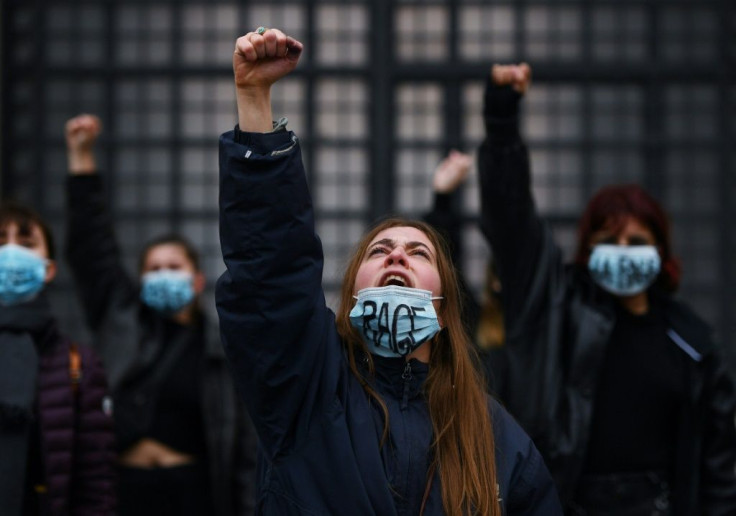Top French Court Rejects Rape Charges In Firefighter Abuse Case
France's highest court on Wednesday rejected a bid by a woman to have three firefighters charged with rape instead of sexual abuse against her while she was in her early teens.
The woman's decade-long quest for justice has gained strong support from feminist groups, who staged protests in several cities last month, and fuelled a long-running debate about sexual consent.
The ruling by the Court of Cassation comes a day after lawmakers voted to introduce a minimum age of consent for the first time, bringing France in line with most other Western countries.
The bill, which is expected to become law within months, would automatically treat sexual relations between an adult and a child under 15 as rape.
Julie (not her real name) alleges rape by more than 20 firefighters in the Paris area between 2008 and 2010, when she was aged between 13 and 15 and receiving treatment for severe anxiety attacks.
During that period she was hospitalised more than 130 times by the national ambulance service staffed by firefighters.
Three firefighters are charged with sexual abuse of a minor, a crime punishable by up to 10 years in prison.
Julie and her family say they as well as 17 others should be tried for rape, which carries a 20-year term, but which under current French law requires proving the use of "force, threat, violence or surprise", including if the victim is a child.
But the Court of Cassation, France's final court of appeal, rejected their request.
The court, which did not rule on the merits of cases, said a lower court had properly applied the law after determining that Julie had shown "the necessary discernment" to consent to sex and had not had been pressured.
For campaigners, the case has highlighted the vulnerability of children in a country with a traditionally permissive culture towards sex with minors.
"We can see that the Court of Cassation is clearly at odds with the will of both the people and lawmakers," said a lawyer for Julie's family, Lorraine Questiaux.
In a statement, the family said they would bring their case to the European Court of Human Rights, based in Strasbourg, France.

In 2010, Julie accused a firefighter identified as Pierre C. of grooming her for sex at the age of 13 and said he introduced her to colleagues, who attacked her in apartments, hospital toilets and car parks, among other venues.
Julie's family says she was incapable of consenting to sex because she was heavily medicated and very vulnerable at the time.
The accused were initially charged with gang rape but the charges were later downgraded by an appeals court, which ruled that Julie's "seductive, provocative, enterprising" behaviour showed she was not acting under duress.
The case is one of several dealing with the issue of consent that have polarised public opinion in Europe.
Presenting arguments in the Court of Cassation, Bertrand Colin, one of Julie's lawyers, said the judges had "confused the absence of refusal with consent".
The issue of sexual abuse as well as incest has gained huge prominence in France in recent months, following an outpouring of claims described as a second French #MeToo movement.
The new wave of claims began with the daughter of a former minister accusing her father-in-law, the well-known political scientist Olivier Duhamel, in a book of abusing her twin brother when they were in their early teens.
The book sparked a tide of accusations of incest, a term used in France for sexual abuse of relatives, even if it is not a blood relative.
The allegations prompted a national reckoning with the abuse of minors and accelerated a push by President Emmanuel Macron's government for new laws to protect children.
In response, the lower house of parliament adopted on Monday a bill that would automatically make sex between an adult and a child under 15 statutory rape, punishable by 20 years imprisonment.
It would also make it illegal for an adult to have sex with a relative aged under 18.
Justice Minister Eric Dupond-Moretti said it aimed to send a clear message that "children are off-limits".
© Copyright AFP {{Year}}. All rights reserved.





















